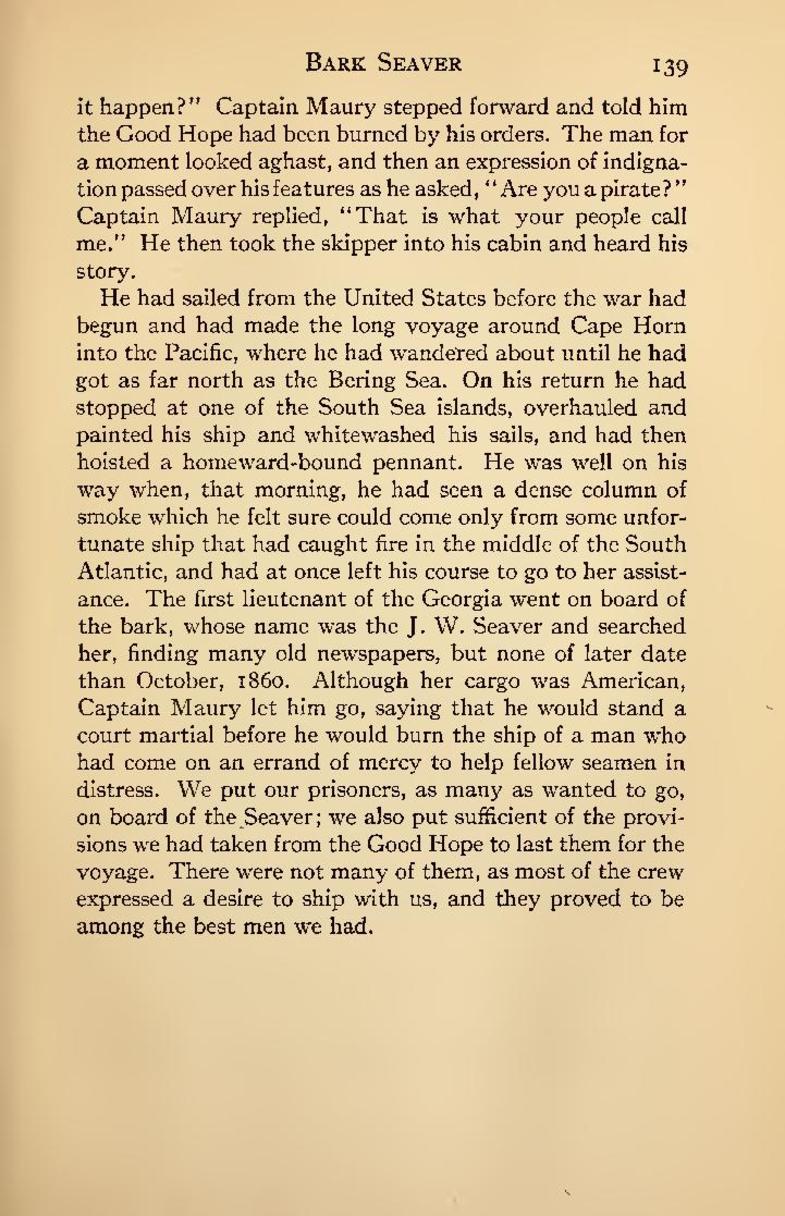happen?" Captain Maury stepped forward and told him Good Hope had been burned by his orders. The man for a moment looked aghast, and then an expression of indignation passed over his features as he asked Are you a pirate? Captain Maury replied, "That is what your people call me." He then took the skipper into his cabin and heard his story.
He had sailed from the United States before the war had begun and had made the long voyage around Cape Horn into the Pacific, where he had wandered about until he had got as far north as the Bering Sea. On his return he had stopped at one of the South Sea islands, overhauled and painted his ship and whitewashed his sails, and had then hoisted a homeward-bound pennant. He was well on his way when, that morning, he had seen a dense column of smoke which he felt sure could come only from some unfortunate ship that had caught fire in the middle of the South Atlantic, and had at once left his course to go to her assistance. The first lieutenant of the Georgia went on board of the bark, whose name was the J. W. Seaver and searched her, finding many old newspapers, but none of later date than October, 1860. Although her cargo was American, Captain Maury let him go, saying that he would stand a court martial before he would burn the ship of a man who had come on an errand of mercy to help fellow seamen in distress. We put our prisoners, as many as wanted to go, on board of the Seaver; we also put sufficient of the provisions we had taken from the Good Hope to last them for the voyage. There were not many of them, as most of the crew expressed a desire to ship with us, and they proved to be among the best men we had.
